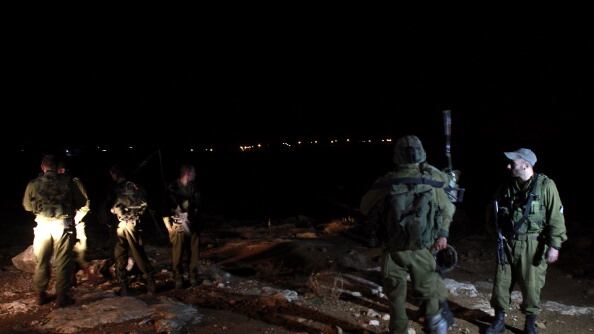The arrival of the Sabbath every week is one of the most magical times in Jerusalem. The city, which starts slowing down at noon is virtually still. The low, dull, moan of the Sabbath siren lulls you into the 25-hour respite from modernity. And, if you are a slacker like me, who does not understand why Jerusalem starts the Sabbath 20 minutes earlier than Tel Aviv, the siren heralds a short sprint, rushing to finish whatever I’m working on, and then informing my children that the time has come to give the (too) many electronics in our lives a much-needed rest.

This Friday that lovely routine was shattered by the violent sounds of a louder, shriller, scarier siren, shortly after the Sabbath siren. Since the end of Yasir Arafat’s terrorist war against Olso, we in Jerusalem mostly have been sheltered from violence. My wife, four children and I visited Jerusalem in 2006 during the Second Lebanon War, and felt safe. We lived in Jerusalem in 2008 and 2009 during Operation Cast Lead in Gaza, and had none of our routines disrupted. With Israel now more menaced by aerial missiles than suicide bombings, we convinced ourselves that Jerusalem was not only protected geographically from Gaza and Lebanon, but that these Islamic fundamentalist fanatics would not risk hitting the al Aqsa Mosque or neighboring Arab villages, despite their desire to target us.
So for us, this air raid siren heralded a new experience, an unwelcome initiation into the conflict. Each of my children, who range in age from 10 to 17, reacted differently. I am not sure if the shouters and criers or the stoics had the “right” reaction. For we all should be shouting and crying: What is wrong with Hamas? What does Islamic Jihad want from us? When will they stop and allow Jews and Palestinians to live normally?
We know the history. We watched Israel withdraw, in anguish, from Gaza in 2005. Does anybody doubt that if the Palestinian Authority at the time, or the subsequent Hamas regime, tried building a functional state they would have succeeded? Does anybody doubt that the international community—and Israel itself—would have showered them with funds? Does anybody doubt that had the militatnts in Gaza stopped trying to destroy us that Israel would gradually have lifted whatever border restrictions remained?
Instead, the Palestinans, who now control their destiny in Gaza, made that strip of land the world’s largest launching pad for Kassam rockets, pounding Israelis who live within Israel’s internationally recognized, uncontested, post-1948 borders. And their message has been clear: Jews get out. You don’t belong here. Your presence is so unacceptable to us we would rather invest in destroying you than creating anything for ourselves.
I do not hate the Palestinians, but I detest most of their leaders and their political culture. I abhor the Hamas charter with its anti-Semitic, anti-Zionist, anti-Western, anti-democratic call for a Judenrein Palestine. Yet I respect Hamas’s honesty. Unlike Yasir Arafat, the Hamas people rarely lie. They make their evil, annihilationist intentions clear. And Israel has no choice but to respond with secure walls and occasional military actions to counter their lethal hatred.
When George H.W. Bush ran for president in 1988, he said that after the Japanese shot him down as a World War II fighter pilot, as he floated on a lifeboat in the Pacific, he thought about his family, God, and America’s separation of church and state. Reporters whose only battlefront experience may have been color war in camp, mocked him for that. But I now understand what he means. True, my 15-year-old son Yoni called our fears “fake,” because “they don’t compare to those who have suffered 14,000 times worse.” Still, such moments get you thinking big thoughts.
I thought about how much my family and I have derived from being Jewish, from embracing the Zionist ideal, from living in Israel. We are sustained by the deep sense of belonging, the rich history, the enduring values, the sense of community, the extraordinary friends. But it also made me angry that we—and so many others who indeed have “suffered 14,000 times worse”—have to pay such a high price, when compromise is achievable, a different status quo is attainable. And yes, while I can criticize Israeli shortcomings here and there, the moral onus to me remains on the Palestinian leaders, who 65 years ago with the U.N. partition plan, 12 years ago during the Oslo peace process, and seven years ago with the Gaza disengagement responded to Israeli compromises with ugly violence. Without change on their side, that encourages the compromises, honors the peacemakers, and accepts the Jewish presence in the Middle East, we are all condemned to more rounds of suffering, more air raid sirens, more trauma, and more death. I know that they are not going away. But they should know that neither are we.



